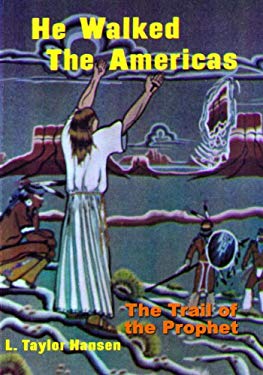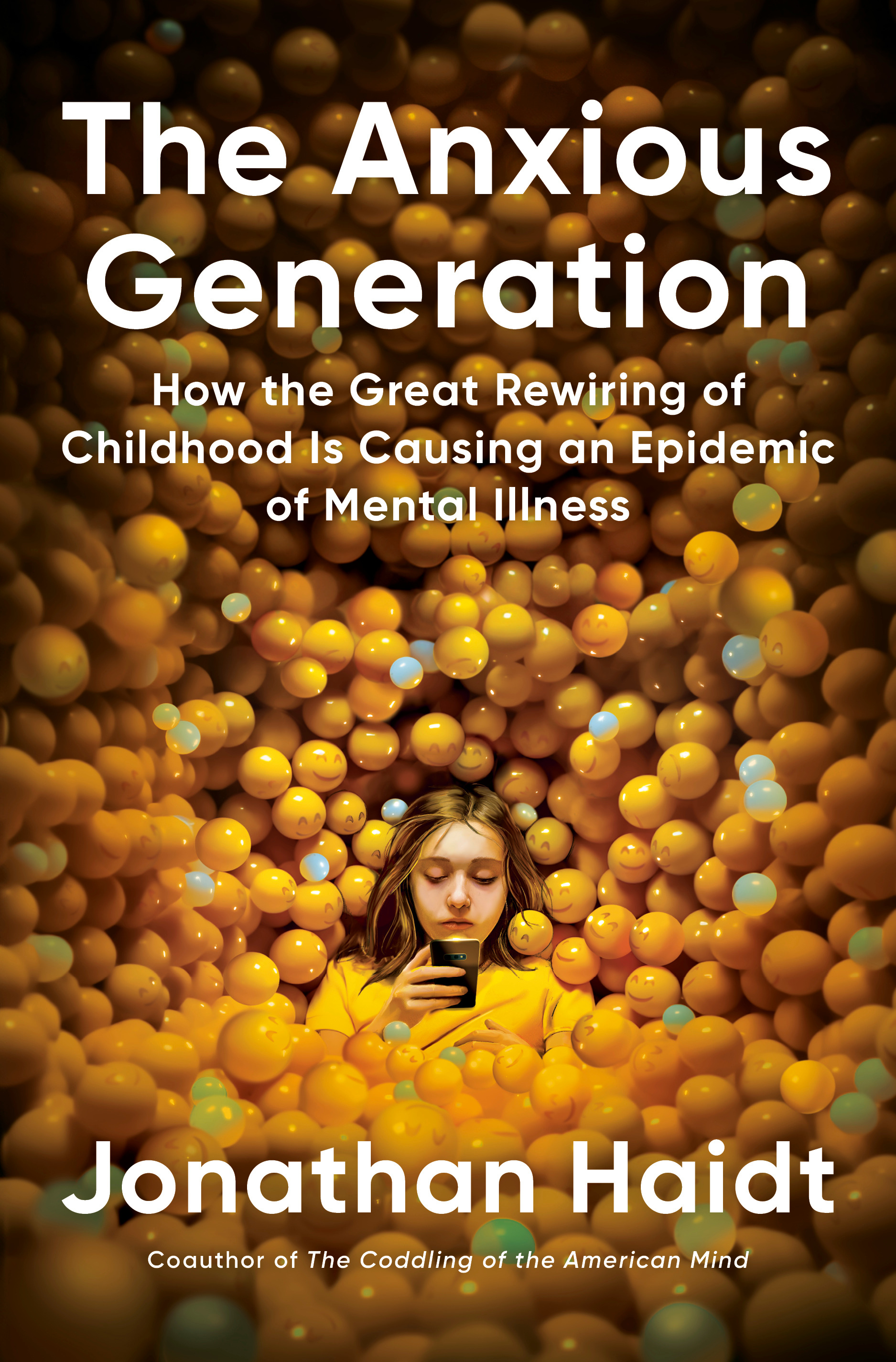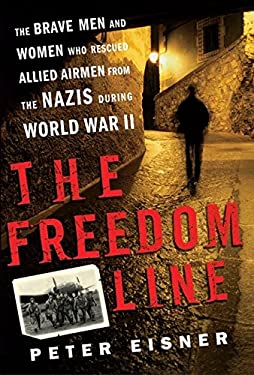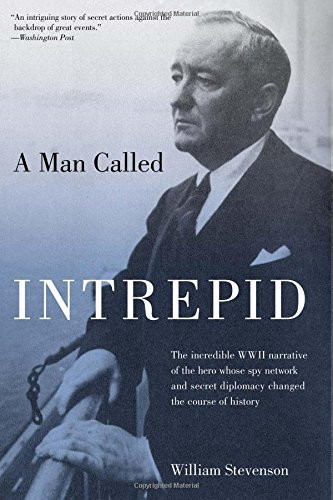 He Walked the Americas: The Trail of the Prophet by L. Taylor Hansen (ISBN: 978-1-939149-19-0) is a compilation of stories from North and South American Indians that relate to a so-called white or pale prophet. The stories tell about the arrival of the prophet, his activities, and then his departure. The legends describe the man, usually as wearing white garments (most often with small crosses on the hem), having brown hair, usually a beard, wearing sandals, and usually with cross-shaped marks in his hands. Sometimes he was accompanied by other white men. Other times he organized churches, established temples, and called people to continue his teachings after his departure. The arrival is usually on a ship in the legends, but one of the stories recorded by the author noted that the mysterious white prophet’s ministry started with his appearance at the temple. The man’s activities while visiting the ancient Indians included preaching peace, ending human sacrifice, healing sick and otherwise afflicted people, and controlling the wind and water. The last two were kind of important in the legends because this god was often referred to as the feathered serpent. Wind was often represented by feathers and the water by the snake. The organization of churches, usually with twelve men called to be leaders and teachers, and the establishing of temples was the other main activity of this white prophet in the legends. The stories then tell of his departure, usually with the people mourning his leaving and eventually forgetting his teachings and reverting to war and human sacrifice.
He Walked the Americas: The Trail of the Prophet by L. Taylor Hansen (ISBN: 978-1-939149-19-0) is a compilation of stories from North and South American Indians that relate to a so-called white or pale prophet. The stories tell about the arrival of the prophet, his activities, and then his departure. The legends describe the man, usually as wearing white garments (most often with small crosses on the hem), having brown hair, usually a beard, wearing sandals, and usually with cross-shaped marks in his hands. Sometimes he was accompanied by other white men. Other times he organized churches, established temples, and called people to continue his teachings after his departure. The arrival is usually on a ship in the legends, but one of the stories recorded by the author noted that the mysterious white prophet’s ministry started with his appearance at the temple. The man’s activities while visiting the ancient Indians included preaching peace, ending human sacrifice, healing sick and otherwise afflicted people, and controlling the wind and water. The last two were kind of important in the legends because this god was often referred to as the feathered serpent. Wind was often represented by feathers and the water by the snake. The organization of churches, usually with twelve men called to be leaders and teachers, and the establishing of temples was the other main activity of this white prophet in the legends. The stories then tell of his departure, usually with the people mourning his leaving and eventually forgetting his teachings and reverting to war and human sacrifice.I thought the book was very interesting. Hansen simply compiled the stories and lets the reader judge for himself what to think. If someone is well acquainted with Mormon theology, the most likely candidate for the great white prophet is Jesus after His resurrection. The legends allow for a few other Book of Mormon-related possibilities, too. Many of the legends involve the white prophet’s arrival via boat. Both the Jaredites and the Nephites arrived by sea and brought with them seeds, which was also in the legends. Some have claimed the legends, especially in North America are the result of Moroni’s travels before finally depositing the plates in the Hill Cumorah. There’s no real way to know since the stories are clouded by time (admitted by the compiler and by some of the Indians relating the legends), but the similarities are fascinating and with so many from such a disparate set of sources, there is also no real reason to discount them all. Knowing the Book of Mormon is true comes through study and prayer, but anthropological evidence for it like this is always nice to have once the spiritual testimony has been gained.

|
This work, including all text, photographs, and other original work, is licensed under a Creative Commons Attribution-NonCommercial-NoDerivatives 4.0 International License and is copyrighted © MMXXI John Pruess. |
 The Anxious Generation: How the Great Rewiring of Childhood Is Causing an Epidemic of Mental Illness by Jonathan Haidt (ISBN: 978-0-593-65503-0) explores why anxiety and other so-called mental health problems have exploded over the last fifteen years. The author believes that most of the blame lies with smart phones. He doesn’t deny that there are good things about smart phones, but he points out that because they allow unfettered access to the Internet and social media in particular, children and teenagers who spend time on the Internet lose out on formative experiences that steel them against anxiety and other mental problems while increasing their likelihood of being negatively affected. Haidt first argues that children need to be exposed to a certain level of risk while they are young to attune the body’s natural response to risk. Throughout history, kids have generally done this by playing outside with other kids, usually unsupervised. A culture of safetyism (eliminating all risks even when the positives of some risk are considered) encourages — in some places, usually more liberal places, forces — parents to keep their kids indoors and only let them out when they or other adults can supervise. This tends to make kids view the world around them as a large and constant threat. The perception of a constant threat is just what so-called clinical anxiety is. Additionally, without being exposed to little risks (the risk of falling off a swing or the risk of being rejected by a peer) that come with interacting with others while outdoors conditions kids to be comfortable only when there is no risk. The second half of Haidt’s argument is that social media exasperates these feelings in most people. Social media generally presents only the good side of things, which is something people on it then worry about it. It is also designed to be addictive (people experience hormone-induced positive sensations when their posts are liked, for example), so it’s a cycle of doom where people endlessly scroll, looking at the supposedly perfect lives of those around them while the post themselves, hoping to feel the dopamine-caused high of the next like or comment. If those are few and far between, the anticipation of the next like keeps people scrolling, all the while increasing negative feelings toward oneself. Haidt notes that girls are particularly prone to this type of activity. Boys are also negatively affected by constant time online. They are less likely to be anxious about social media, but video games and pornography easily engage the young male mind, pulling them away from reality. Since it’s relatively easy to exist in a world where you don’t have to engage in real-world situations that may have negative consequences, boys withdraw into these virtual worlds and try to not emerge. The book ends with some ideas on how to overcome the problems caused by smart phones. He has ideas for governments and for individuals, led by eliminating smart phone exposure for those under fourteen and limiting it for those over, both in school (complete bans on smart phones at schools are his preferred option) and at home. He also advocates letting kids get out and play and do other things on their own, like run simple errands, do chores around the house, and other things that are relatively safe, but still have distinct negative consequences for not accomplishing them.
The Anxious Generation: How the Great Rewiring of Childhood Is Causing an Epidemic of Mental Illness by Jonathan Haidt (ISBN: 978-0-593-65503-0) explores why anxiety and other so-called mental health problems have exploded over the last fifteen years. The author believes that most of the blame lies with smart phones. He doesn’t deny that there are good things about smart phones, but he points out that because they allow unfettered access to the Internet and social media in particular, children and teenagers who spend time on the Internet lose out on formative experiences that steel them against anxiety and other mental problems while increasing their likelihood of being negatively affected. Haidt first argues that children need to be exposed to a certain level of risk while they are young to attune the body’s natural response to risk. Throughout history, kids have generally done this by playing outside with other kids, usually unsupervised. A culture of safetyism (eliminating all risks even when the positives of some risk are considered) encourages — in some places, usually more liberal places, forces — parents to keep their kids indoors and only let them out when they or other adults can supervise. This tends to make kids view the world around them as a large and constant threat. The perception of a constant threat is just what so-called clinical anxiety is. Additionally, without being exposed to little risks (the risk of falling off a swing or the risk of being rejected by a peer) that come with interacting with others while outdoors conditions kids to be comfortable only when there is no risk. The second half of Haidt’s argument is that social media exasperates these feelings in most people. Social media generally presents only the good side of things, which is something people on it then worry about it. It is also designed to be addictive (people experience hormone-induced positive sensations when their posts are liked, for example), so it’s a cycle of doom where people endlessly scroll, looking at the supposedly perfect lives of those around them while the post themselves, hoping to feel the dopamine-caused high of the next like or comment. If those are few and far between, the anticipation of the next like keeps people scrolling, all the while increasing negative feelings toward oneself. Haidt notes that girls are particularly prone to this type of activity. Boys are also negatively affected by constant time online. They are less likely to be anxious about social media, but video games and pornography easily engage the young male mind, pulling them away from reality. Since it’s relatively easy to exist in a world where you don’t have to engage in real-world situations that may have negative consequences, boys withdraw into these virtual worlds and try to not emerge. The book ends with some ideas on how to overcome the problems caused by smart phones. He has ideas for governments and for individuals, led by eliminating smart phone exposure for those under fourteen and limiting it for those over, both in school (complete bans on smart phones at schools are his preferred option) and at home. He also advocates letting kids get out and play and do other things on their own, like run simple errands, do chores around the house, and other things that are relatively safe, but still have distinct negative consequences for not accomplishing them.
 The Freedom Line: The Brave Men and Women Who Rescued Allied Airmen from the Nazis during World War II by Peter Eisner (ISBN: 0-06-009663-2) is a book largely about big things undertaken by people in Belgium, France, and Spain to do what they simply considered their part in fighting the Nazi regime. The book tells the story of the Freedom Line, a group of people that moved downed Allied airmen from occupied territory to Spain, where they could link up with American or British diplomats and be safely taken home. The Freedom Line was not a huge operation, with no more than a couple dozen figures aided by scores of friends and confidants, but was fairly effective and managed to smuggle between 650 and 700 Allied soldiers out of harm’s way. While there were a few routes that escapees used, the main one was the Comet Line, run mainly by Dédée de Jongh, her father, Jean-François Nothomb, Florentino Goikoetxea, Kattalin Aguirre, and Elvire de Greef. These Belgians, Frenchmen, and Basques worked together to rescue Allies troops from the invaders. It was dangerous work, and many of the resistance members running the Comet Line ended up in prison, concentration camps, or dead, either executed by Germans or perishing along the treacherous smuggling routes through the Pyrenees Mountains. They had a network of safe houses between Belgium and Spain, but there was always the chance traitors would infiltrate the line, and one notorious traitor — Jacques Desoubrie — did so, resulting in the deaths of many Allied airmen and the death or imprisonment of many resistance members. The main figures running the Freedom Line preferred to control their own destiny despite British intelligence’s efforts to exert some control over the operation. British assistance was welcomed, but not necessarily with open arms. The book mainly follows the journey of a crew of Americans, piloted by Bob Grimes, shot down over Belgium from that fateful day to their eventual freedom. That approach provides insight into how the line operated and who the main players were. Sometimes, details from other escapees’ stories are included to complete the picture or provide fun anecdotes like the American pilot passionately kissed on a train by a woman he barely knew only as his guide from one safe house to the other in order to avoid having to show any papers to Nazi soldiers on the train.
The Freedom Line: The Brave Men and Women Who Rescued Allied Airmen from the Nazis during World War II by Peter Eisner (ISBN: 0-06-009663-2) is a book largely about big things undertaken by people in Belgium, France, and Spain to do what they simply considered their part in fighting the Nazi regime. The book tells the story of the Freedom Line, a group of people that moved downed Allied airmen from occupied territory to Spain, where they could link up with American or British diplomats and be safely taken home. The Freedom Line was not a huge operation, with no more than a couple dozen figures aided by scores of friends and confidants, but was fairly effective and managed to smuggle between 650 and 700 Allied soldiers out of harm’s way. While there were a few routes that escapees used, the main one was the Comet Line, run mainly by Dédée de Jongh, her father, Jean-François Nothomb, Florentino Goikoetxea, Kattalin Aguirre, and Elvire de Greef. These Belgians, Frenchmen, and Basques worked together to rescue Allies troops from the invaders. It was dangerous work, and many of the resistance members running the Comet Line ended up in prison, concentration camps, or dead, either executed by Germans or perishing along the treacherous smuggling routes through the Pyrenees Mountains. They had a network of safe houses between Belgium and Spain, but there was always the chance traitors would infiltrate the line, and one notorious traitor — Jacques Desoubrie — did so, resulting in the deaths of many Allied airmen and the death or imprisonment of many resistance members. The main figures running the Freedom Line preferred to control their own destiny despite British intelligence’s efforts to exert some control over the operation. British assistance was welcomed, but not necessarily with open arms. The book mainly follows the journey of a crew of Americans, piloted by Bob Grimes, shot down over Belgium from that fateful day to their eventual freedom. That approach provides insight into how the line operated and who the main players were. Sometimes, details from other escapees’ stories are included to complete the picture or provide fun anecdotes like the American pilot passionately kissed on a train by a woman he barely knew only as his guide from one safe house to the other in order to avoid having to show any papers to Nazi soldiers on the train.

 Hide Your Children: Exposing the Marxists behind the Attack on America’s Kids by Liz Wheeler (ISBN: 978-1-68451-391-8) provides a look at how the education system has deteriorated further since the 1980s. The book starts with an overview of just who the Marxists the subtitle is talking about and then gives specific examples of how attacks on the nuclear family, endless accusations of racism, critical theory, queer theory, and attacks on homeschool, a proxy for attacks on personal responsibility and liberty, fit into the Marxist program meant to destroy society. Each chapter gives some history of where the modern Marxist threat originated and, using specific examples, how it became more mainstream than it ever should have. The historic sections are followed by a discussion of how it is today and the threat that presents to America, a country built on the idea that it survives only if the people who inhabit it are a moral people. The book ends with a chapter providing some suggestions on how to change the tide and fight back against the Marxist wave that has overpowered our educational system since it’s much easier to change the minds of the impressionable young than older people more set in their ways. The author’s suggestions include fighting the culture war, working to ban critical theory from public institutions, homeschooling whenever possible, fighting for school choice, working against ESG and DEI, remembering that local politics have an outlandishly large impact on our lives, returning to religion, and protecting the innocence of our children. Finally, there were some appendices with the Constitution and papal encyclicals that discussed the dangers of Communism.
Hide Your Children: Exposing the Marxists behind the Attack on America’s Kids by Liz Wheeler (ISBN: 978-1-68451-391-8) provides a look at how the education system has deteriorated further since the 1980s. The book starts with an overview of just who the Marxists the subtitle is talking about and then gives specific examples of how attacks on the nuclear family, endless accusations of racism, critical theory, queer theory, and attacks on homeschool, a proxy for attacks on personal responsibility and liberty, fit into the Marxist program meant to destroy society. Each chapter gives some history of where the modern Marxist threat originated and, using specific examples, how it became more mainstream than it ever should have. The historic sections are followed by a discussion of how it is today and the threat that presents to America, a country built on the idea that it survives only if the people who inhabit it are a moral people. The book ends with a chapter providing some suggestions on how to change the tide and fight back against the Marxist wave that has overpowered our educational system since it’s much easier to change the minds of the impressionable young than older people more set in their ways. The author’s suggestions include fighting the culture war, working to ban critical theory from public institutions, homeschooling whenever possible, fighting for school choice, working against ESG and DEI, remembering that local politics have an outlandishly large impact on our lives, returning to religion, and protecting the innocence of our children. Finally, there were some appendices with the Constitution and papal encyclicals that discussed the dangers of Communism.